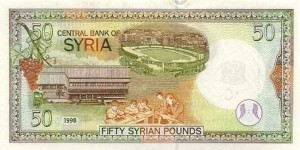 When we are shown horrific images of war, such as the dying child filmed by the late Marie Colvin in Syria last week, it is hard to imagine any other product of conflict than the tragic loss of human life.
When we are shown horrific images of war, such as the dying child filmed by the late Marie Colvin in Syria last week, it is hard to imagine any other product of conflict than the tragic loss of human life.
But brutality and bullets are not the only things that kill.
The impact of month after month of bloodshed on an economy acts like a silent weapon of mass destruction.
As soon as hostilities begin, most normal economic activity ends. Add to this the indiscriminate impact of sanctions against the likes of Syria’s Bashar al-Assad and Libya’s Muammar Qaddafi, and the hope of making a living to feed, clothe and house one’s family evaporates.
Businesses in the real economy cease to function. One executive in Syria revealed just yesterday in The National that his company had recorded absolutely no revenue last year. This might seem a statement of the obvious, even the absurd, to those watching the shelling and gunfire on the news. Of course he has made no money, you might say. How could he even dwell on the material at a time such as this?
But that executive — who asked us to withhold his name, his company name and even the industry in which his company operates, so fearful is he of reprisals — has a great responsibility he is unable to meet.
He has hundreds of employees who have not been paid, who have families who have not eaten and who have more than likely lost generations of wealth as the value of the Syrian pound continues to plunge, wiping out any savings they might have had.
Those with money in the bank who acted quickly when the conflict in Syria began last February were probably responsible for one of the most significant flights of capital out of a country since the start of the Arab Spring.
At least 100 billion Syrian pounds (Dh6.41bn), a little less than US$2bn, left the country’s banking system in the first nine months of last year, according to the latest data from Syria’s 14 publicly listed banks.
The sum does not sound so great, but it accounted for almost a quarter of all cash on deposit at the countries’ privately owned banks.
What is more, the data was drawn from third-quarter earnings statements, the latest available, meaning billions more has probably left the country in the intervening months.
Last year, when conflict raged in Egypt and Libya, the Bank for International Settlements revealed how great an impact conflict had on those countries’ financial systems.
More than $8.6bn of deposits left the banking systems of Egypt and Libya in the first three months of last year alone. The bank also showed that the unrest put the brakes on international lending to both countries. Lending to Egypt declined by $3.2bn, or 14 percent in the first quarter, while loans to Libya shrank by about three quarters of a billion.
Syria is a much smaller economy than either Egypt or Libya and by comparison has experienced a much faster and greater flight of capital than either of the North African countries.
This fact is significant, according to economists who have studied the links between capital flight and war.
David Fielding, an economist at the University of Leicester in the UK, teamed up with the UN in 2003 to study the relationship between capital flight and armed conflict.
They studied the first intifada between Israel and the Palestinian Territories in the late 1980s and early 1990s and found that every time conflict intensified capital flight would spike.
Nothing too surprising about that, perhaps, but they also found that the greater the sum of money that left in that initial flight, the longer and more deadly that particular uprising became.
So if the people of Syria are to be spared a conflict as long and bloody as the evidence from their banking system would suggest, economic support as soon as we are able to extend it will be just as crucial as humanitarian aid and military assistance.
Without it, many more generations are likely to be lost to poverty and hopelessness than will ever be lost to the gun.
By: James Doran
Huffington post

Leave a Reply
You must be logged in to post a comment.